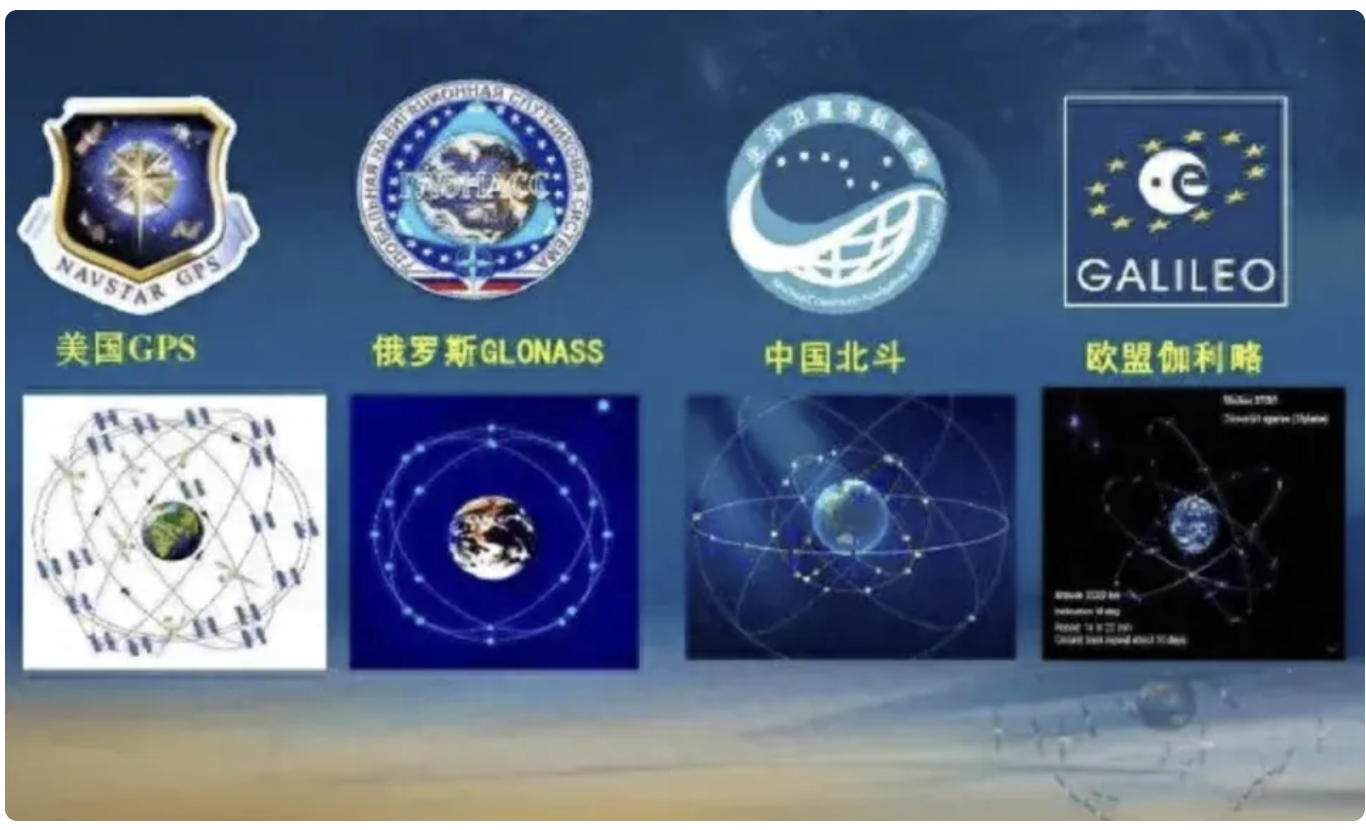My country’s Beidou navigation system is not as commercially available as the US GPS. Is this because of technological backwardness?
In the field of global satellite navigation, the US GPS system originally dominated. Even in 2019, the US GPS market share in the commercial field exceeded 90%.
However, with the gradual improvement and rise of my country’s Beidou satellite navigation system, this situation is being broken. The Beidou system not only represents the results of my country’s independent innovation in science and technology, but also demonstrates our ambition in the field of global navigation.
Compared with the US GPS, the Beidou system has a wider range of application scenarios and higher security. It provides accurate positioning services to global users and has gradually become a strong competitor in the field of global navigation.
However, despite this, why does GPS still dominate the commercial field? The reason behind this is not just the gap in technology, but also involves many factors such as market, historical background and consumer habits.
Why did my country develop the BeiDou system?
The motivation for my country to develop the BeiDou system was not a temporary move, but the result of long-term strategic considerations. In 1993, the “Galaxy Incident” became the fuse for my country to start the development of its own satellite navigation system. At that time, my country’s “Galaxy” cargo ship was forced to stop by the United States without GPS support, and eventually suffered heavy losses.
This incident deeply awakened my country. We realized that only by mastering our own navigation system can we get rid of dependence on external technology and ensure national security and sovereign independence.
Therefore, since the 1990s, my country has begun to build the BeiDou system. From the initial regional services to today’s global coverage, the BeiDou system has gradually achieved a leap from catching up to leading.
Today, my country’s BeiDou has become one of the “four kings” of the global satellite navigation system, standing shoulder to shoulder with the US GPS, Russia’s GLONASS and the EU’s Galileo system.
Technical highlights of the Beidou system
The Beidou system has several significant advantages at the technical level. The first is its coverage. Beidou can not only provide global coverage positioning services, but also has high-precision positioning services in the Asia-Pacific region. Especially in the fields of emergency rescue, disaster prevention and communication, the Beidou system can provide more refined positioning support.
Secondly, the short message communication function of the Beidou system is not available in other navigation systems. Users can not only receive positioning information, but also communicate short messages through the Beidou system, which plays a great role in disaster relief and military fields. For example, when ground communications are interrupted, Beidou’s short message function can ensure the transmission of information and enhance emergency response capabilities.
Most importantly, the high-precision positioning technology independently developed by the Beidou system enables it to compete with GPS on a global scale. Especially in the fields of high-end industries, intelligent transportation, and autonomous driving, the precise positioning of the Beidou system provides strong support for these cutting-edge technologies.
Why does GPS still dominate the market?
Although the technical advantages of the Beidou system are gradually emerging, the position of the US GPS in the global market remains strong. This is mainly attributed to the following factors:
First, the historical advantage of the GPS system. As the world’s earliest satellite navigation system, GPS has been providing services to global users since the 1970s. After decades of technological iteration and market accumulation, it has formed a broad user base and market dependence. Especially in daily applications such as smartphones and car navigation, consumers’ use of GPS has been deeply rooted.
Secondly, the United States has strong market promotion capabilities. The United States not only ensures the leading position of GPS through military means, but also actively promotes the use of GPS worldwide at the commercial level. Many multinational companies support GPS positioning services by default when designing products, which makes GPS a standard configuration for global devices.
In addition, the United States uses political and economic means to influence many countries to ensure the monopoly of its satellite navigation system worldwide. Even in the face of the rise of the Beidou system, the United States still attempts to limit the application and promotion of Beidou in certain markets through diplomatic and trade means.
Challenges and opportunities of Beidou commercialization
Although the Beidou system is not inferior to GPS in technology, its commercial promotion still faces many challenges. The first is market inertia. Most smartphones in the world support GPS by default, while the penetration rate of Beidou system in commercial terminals is relatively low. Secondly, GPS has been dominant in the ecosystem of global navigation equipment, and it is not easy to change this pattern.
However, the potential of Beidou system should not be underestimated. In recent years, the application of Beidou system at home and abroad has gradually increased, especially in countries and regions along the “Belt and Road”, Beidou’s market share is gradually expanding. At the same time, the accuracy and reliability of Beidou system have brought it a wide range of application opportunities in emerging fields such as industrial Internet, unmanned driving, smart cities, etc.
With the improvement of my country’s scientific and technological strength and the increase of policy support, the market share of Beidou system in the commercial field is expected to increase further in the future. Especially in my country, the promotion of Beidou navigation system has become the focus of national policy, and the cooperation between government, enterprises and scientific research institutions is paving the way for the full popularization of Beidou system.
Beidou’s global influence and future prospects
The rise of my country’s Beidou system has not only brought technological breakthroughs to my country, but also broken the monopoly of the US GPS worldwide. In the future, with the continuous upgrading and commercial promotion of the Beidou system, global users will gradually rely on Beidou. This is not only a scientific and technological achievement, but also a symbol of my country’s place in the global scientific and technological competition.
More importantly, the Beidou system not only serves navigation and positioning, but also carries my country’s strategic vision of independent innovation and scientific and technological development. At the national level, the Beidou system provides my country with stronger national security. In the commercial field, the Beidou system provides basic support for the global intelligent and digital transformation.
In general, although GPS still occupies a dominant position in the global navigation market, the Beidou system has great development potential, and its market share in the global navigation field will continue to expand in the future. With the rise of Beidou, the pattern of the global navigation market will usher in new changes, and my country will continue to play a key role in this field.
The future is promising, and Beidou’s starlight will be brighter.




